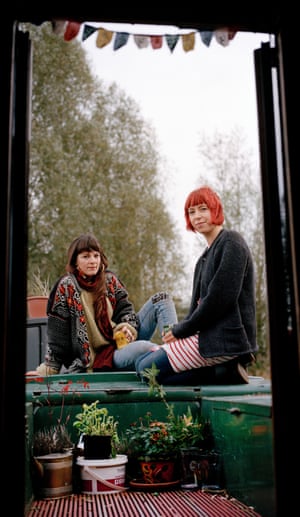... whether it's about housing:
Futures Forum: "Bad news for people trying to get on the property ladder" >>> Sidmouth's property inflation rate is one of the highest in the country
Futures Forum: The South West: "This is where the young people are struggling to get on to the property ladder which is why towns are banning holiday homes."
Futures Forum: Elderly to blame for housing crisis...?
... or jobs:
Futures Forum: “We need a more balanced community." >>> "The Sid Valley needs a ‘long-term vision’ to attract more young people and families,"
Futures Forum: Sidford, employment land and the demographic time bomb
Futures Forum: East Devon's demographic time bomb >>> "the District Council has a duty to create balanced communities"
... or wealth:
Futures Forum: The widening wealth gap: "Shifts in who owns what property are now fuelling the wealth gap between rich and poor, while also creating sharp wealth divides between young and old."
... or the climate:
Futures Forum: Brexit: and the future for climate change >>> anti-intellectualism and inter-generational theft
The generations are literally drifting apart:
Futures Forum: Brexit: and Britain's cities growing younger and its small towns growing older at a faster rate than at any other time in recent history
There are some good ideas out there, though:
Futures Forum: A solution to our housing problems: an intergenerational home
And one project in Somerset is really managing to bring the generations together:
Futures Forum: Regeneration from the roots up >>> "every community has the power to build a strong and secure future for itself" >>>
The last piece looked at a recent article in the Guardian which looked at the issues:
‘Baby boomers have built an empire and empires need protecting,” says Reuben Young, a millennial who runs the pressure group PricedOut. “When younger people say, ‘We want our own house, we want to build more’, baby boomers see their empire as being under threat. God forbid that house prices fall and housing becomes cheaper for young people!”
Young is speaking at the Battle Of Ideas at the Barbican, close to the City of London, in October. Part of a panel addressing the question “Have Wrinklies Cheated Millennials?”, he offers some compelling arguments that they have: “Millennials will pay, over the course of their 20s, nearly £50,000 more in rent than baby boomers did at the same age. Millennials won’t have as big a pension as baby boomers, they’ll be paying more in taxes to fund an ageing population, and they are often spending half of their take-home pay renting homes they can be evicted from with just two months’ notice. You would be mad not to admit there is systemic intergenerational inequality in this country.”
Some of the baby boomers in the audience do not, however, take this lying down. “The idea we have created an empire makes us sound like Bond villains,” one woman says. “I’ve got kids who are 16 and 18, who I actually care about,” says a 50-year-old man with a lilting geordie accent. “I’ll fund them through university, and will probably help them get a house. My mother has helped me throughout my life. When she was young, nobody had a house. Wake up! People didn’t have central heating or fitted carpets until the 1980s. This fantasy that young people have it hard is really annoying. They need to stop acting like victims.”
***
Are millennials Generation Rent or Generation Whinge? Dr Albert Sabater, a geographer at the University of St Andrews and a member of the ESRC Centre for Population Change, believes these conflicts are just a taste of things to come. According to Sabater, such divisions are exacerbated by the fact that the old and the young now live more physically separate lives. “The population of the UK is ageing fast,” he says, “and that ageing is occurring unevenly across the country. British society has been slowly segregating in many ways, and one of these is where the old and young live.” This is, in part, for the reasons Young identifies: people in their 20s and 30s can’t afford to live in areas where house prices have rocketed since the baby boomers bought in the 1970s and 80s. So we are creating ghettoes of young and old, renters and homeowners.
Sabater worries that this will prove damaging for society; both last year’s Brexit referendum and the general election in June showed clear evidence of a division in attitude and political orientation between the two groups. The old and the young appear to be arm-wrestling over the future of the UK: witness the recent Momentum meme attacking wealthy homeowners, painting them as smug and self-interested. Physical segregation is likely to make that confrontation worse.
This segregation can be seen within parts of the country – Sabater says central Bedfordshire shows the most marked separation between old (65-plus) and young (25-40) districts – and also between parts of the country. The place with the most elderly population is west Somerset, where the median age is 53.9; the area with the youngest population is central Manchester, where the median is 30.1 (statisticians consider median age to be a more reliable measure than average age, which tends to be distorted by numbers at the extremes). So what does it feel like to live in an area where the age profile is so skewed? And is the notion of an intergenerational war real?
***
Minehead is the largest town in west Somerset, with 12,000 residents, and is geographically isolated; you have to take a meandering bus ride from Taunton to reach it. It is best known as home to one of the three remaining Butlin’s holiday camps, and the high street is full of rundown cafes and charity shops. There are a surprising number of tattoo parlours for a town of older people.
One of Minehead’s star attractions is the West Somerset Railway, a heritage line running to Bishops Lydeard, close to Taunton. You can’t help seeing it as a metaphor for this part of conservative, pro-Brexit Britain: steam trains; staff in old-fashioned uniforms tending litter-free, flower-bedecked platforms; lovely little stations set among rolling hills. This is England circa 1952, which is just the way the steam enthusiasts like it.The stereotype of well-off pensioners living in multimillion-pound houses and taking frequent mini-breaks to Florence is based on perceptions of a relatively small group in the south-east of England. Pensioners in their £250,000-plus bungalows in Minehead may be doing OK, but paradise, it quickly becomes apparent, this isn’t. That applies to west Somerset generally: life can be tough, especially in the farms and villages up on the moors. “People say, ‘You live in such a beautiful place,’” one farmer tells me, “but you can’t eat scenery.” Another local describes the conditions in which some people live as “picturesque poverty”.
But it is not how Alex de Mendoza, chairman of the Minehead chamber of commerce, wants it. He thinks that, for the economic health of the town, the proper Minehead to Taunton rail link, axed in 1971, should be restored to create jobs, encourage commuters and let visitors to Butlin’s get to Minehead without clogging up the roads. A 60-year-old former professional oil rig diver who runs a hotel, he is frustrated with the heritage line for opposing the plan, and with residents for being so resistant to change. “People come here, they retire and they want the town to remain in aspic,” he says. “It’s a dormitory for the elderly.”
There are young families in Minehead, but they live primarily on two estates, made up mostly of social housing. Minehead exemplifies Sabater’s point that old and young tend to live separately: the old in bungalows on the edge of town and, for the more prosperous, big Edwardian houses up on North Hill; younger families with low disposable incomes live on the estates; younger single people, many of them working at Butlin’s, are in private rented accommodation in the centre.
Growing up in Minehead can be problematic, despite the allure of moorland and sea. The town’s secondary school has struggled in the past (De Mendoza sent his son away to board) and there are few jobs for school-leavers, other than at Butlin’s or in a supermarket. The young who do stay can get bored and restless, and there are problems with antisocial behaviour, underage drinking and recreational drug use.
A further problem is that the large number of retirees has driven up property prices, and younger people on low incomes find it hard to get on the housing ladder. “Prices are too high for youngsters,” one woman living in social housing with her 12-year-old daughter tells me. “I feel older people have pulled up the ladder behind them.”
Jean Parbrook, Minehead’s 67-year-old Tory mayor, has to navigate the competing demands of past and future, sleepy bungalowland and sleepless Butlin’s, which makes ends meet in winter with “adult weekends” frequented by drunken stag and hen parties that mortify elderly locals. Parbrook wants the town to prosper, but sees her role primarily as protecting the interests of residents, particularly the “anonymous elderly” who in later old age can feel isolated and insecure. They are also the ones who have suffered most from cutbacks in local services, not least in public transport. Bungalowland is a dreary place to be marooned.
Parbrook accepts that there is some tension, but defends older people from accusations of selfishness: “It wasn’t all beer and skittles when we were young. Yes, you probably could get a mortgage more easily, but you had to pay 15% interest.” The street she lives in, she says, is full of people who bought their houses decades ago, worked hard, brought up families and paid off their mortgages. She and her husband paid £25,000 for their house in the 1980s, and it’s now worth around £200,000. They are not speculators, she insists; they haven’t made a fortune.
Minehead bowls club has almost 200 members, with several in their early 30s, the club’s youth section. I put it to the chairman, 72-year-old Duncan Stevens, that, with rising house prices, spiralling tuition fees and now Brexit, the young feel that the oldies have hung them out to dry. Echoing Parbrook, he thinks they fail to realise how tough it was for his generation. “When we were in our 20s, buying a house was still a major undertaking. Or it certainly was for me. It was never easy.”
Stevens, a retired commercial salesman, needs two sticks to walk, but that doesn’t inhibit his bowling – he zips across the green in a wheelchair. “As far as Brexit is concerned, I can understand that they might think we’ve pulled up the drawbridge,” he admits, “but there’s a lot more to it than that. We’re of an age that we all voted in the original referendum [in 1975], but what we have now in the EU is not what we signed up for. Lots of us feel we were conned into it.” He made what he considers a rational choice and tried to read everything on Brexit that he could, though he drew the line at the Treaty of Rome. Brexit dominates many of the conversations I have in west Somerset, which voted leave by 60% to 40%.
In Porlock, a pretty village five miles west of Minehead that boasts the most elderly population in the country, I meet 55-year-old Richard Growden, proprietor of Squires, a shop that sells “pet supplies, retro paraphernalia and quality antler work”. An ex-army man, Growden stresses that local people like to live independently, have a conservative (and Conservative) mentality rooted in hunting and farming, and were keen to be rid of EU regulation. “Personally, I wanted the UK to be back in control of its laws,” he says. Do elderly people here worry about the impact of Brexit on the young, I ask. “No, they aren’t bothered at all.” Just because they’re old, he explains, doesn’t mean they have to defer to youth: “They’re old and bold.”
With its silent marshes and gorgeous cream teas, Porlock is a haven for the old, prosperous, content: a paean to the past. But Watchet, an engaging harbour town with a population of 4,000, 10 miles east of Minehead, may point a way forward. In 2013, a group of locals founded Onion Collective, to help regenerate the town and provide jobs. Their aim was to create a place where they could bring up their children, and where those children would have everything they needed if they wanted to stay.
Naomi Griffith, a director of Onion Collective, grew up in west Somerset, where her parents ran a zoo, but left when she was 18. “Like pretty well everyone who grows up here, I wanted to escape as soon as possible,” she says. “As a teenager, it’s not very exciting.” After a decade away – studying in London, travelling in South America and working as a teacher and event manager – she came home. “I wanted to live somewhere where there was a sense of community, and that definitely does exist in west Somerset.” What doesn’t exist is jobs. “If you’re a woman who wants to be there for your children, but also wants to have a decent job, you haven’t got a hope in hell.”
She and her co-founders opened a visitor centre in Watchet, helped art galleries get off the ground and encouraged microbusinesses and creative industries to move in. “We are seeking to create the kind of vibe and opportunity that exists in Bristol,” Griffith says. The group is developing a site next to the harbour, and hoping to get funding for a bigger gallery, workshops and a cafe. It is also doing a feasibility study to try to establish an industry that could sustain hundreds of jobs in the area, to replace the paper mill that used to employ 170 people before it closed 18 months ago. “We are trying to think what a new industry would look like,” Griffith says. “Something that will employ a couple of hundred people and last for a hundred years.”
***
One danger that you don’t face in Minehead is being knocked over in the street by young people hurrying along while looking at their phones. Manchester has 100,000 students and exemplifies New Labour’s attempt to use “studentification” to boost urban regeneration in the early 2000s. The old, predominantly white working class has been pushed out to the north and east of the centre; halls of residence and flats for young professionals have moved in. There is a splurge of hipster coffee shops in the Northern Quarter, near Piccadilly Gardens, and an area unselfconsciously dubbed “New Islington”. The Blairite dream lives on.
In the middle of New Islington is a marina where I meet Zoë Padley and Danielle Lovett, who come to represent millennial Manchester for me. They are living on houseboats because it’s cheaper than a city centre flat and gives them freedom. “I’ve got solar panels on my boat,” Lovett says, “and can decide how I live and be more environmentally friendly.”
New Islington, in the old industrial Ancoats area, is a stark example of the way the working class is being squeezed out. Lovett believes it is deliberate “social cleansing” by the council, and claims she knows of one elderly resident who was moved to Rochdale when the council estates here were razed.
Lovett and Padley have archetypally millennial jobs. Padley describes herself as an artist/designer/performer; Lovett teaches art to disadvantaged children. Both are motivated by environmentalism, personal freedom and protecting their community: they recognise the creation of the marina was part of the process of gentrification, but are now doing what they can, through their residents’ association, to prevent further erosion of the remaining population’s rights; there are still some old council estates to the north.
Whether millennials are choosing to be free, or having freedom thrust upon them by social change, is a moot point. “I’m 35 and I still have a 25 grand debt from going to college, and what did it get me?” Padley asks. “There just aren’t the jobs available now. My mother did half the training I did and is working [as a designer] at the BBC and for big opera companies. The flow of jobs and opportunities was just easier then. There were fewer people, it was more relaxed, there was less scrabbling for work.” Jobs were also more structured, with fewer short-term and zero-hours contracts. Precariousness and freedom are different sides of the same coin. Padley points to the paradox that in a world that is so fluid and unstable, the opportunities can seem both boundless and nonexistent.
“A lot of young people feel the older generation doesn’t understand how hard it is, particularly with housing costs,” says 23-year-old Stan Platford, who studied photography at Manchester University and is looking for a lecturing job. “I do think the older generation have to take some of the blame. The vote for Brexit really annoyed young people, because we’ll be picking up the older generation’s mess. It’s the same with the banking crash in 2007: rich old bankers messing around with money and leaving the younger generation to pick up the bill. I’d love to own my own house, but that seems a million miles away. We’re stuck renting.”
Most of the young people I meet think they are getting a raw deal in terms of housing, tuition fees and jobs, but rarely blame the older generation as directly as Platford does, tending to see it more as societal cock-up than boomer conspiracy. “Manchester is very deprived and everyone is struggling,” says Jack Houghton, a 22-year-old from Barrow studying politics and modern history. “The system is skewed against youth, but there are lots of other people who are disadvantaged, too. Right now, I’m living in a house. I don’t own it, but some people don’t have a house at all and are literally living on the streets.”
The students I meet are idealistic. They feel far more strongly about climate change and social injustice generally than tuition fees. They are also determined to be the generation that makes a difference. “It’s a good lesson for us that, in 50 years, when we are old, we need to give the young a leg-up,” says 26-year-old geography student James Shuttleworth. “We need to look to the future and not repeat the mistakes of the past.”
That idealism fed the support for Jeremy Corbyn that was so apparent in June’s election. “Corbyn has excited a lot of students,” says Cameron Broome, 20, news editor of the Mancunion, Manchester University’s newspaper. “You hear the chant on the bus, in the club; last week I even heard someone chanting, ‘Oh Jeremy Corbyn’ in the street. He’s addressing young people’s concerns head on.”
Broome and his housemate, American studies student George Flesher, also 20, both come from Dewsbury, west Yorkshire. They and four others live in a house in Fallowfield, a suburb that has been colonised by students. “A lot of the properties are owned by a few companies or a few landlords,” Broome says, “and they all charge a similar rate. The ownership is oligopolistic.” It is nonetheless cheaper, and he thinks less claustrophobic, than living in one of the nearby halls of residence.
Neither Broome nor Flesher blames the older generation for the problems faced by the young. “It’s swings and roundabouts,” says Flesher. “My mum and dad bought a house in their 20s and had all that, but not as many people went to university back then.” Dewsbury voted heavily in favour of Brexit, but Flesher is reluctant to attack his home town and sees the referendum as a catch-all protest against “the hand they [working class voters in the north] have been dealt”. He thinks they have to be taken seriously, rather than written off as British “deplorables”. “The best way to engage with them isn’t to insult their intelligence,” he says, recalling shadow foreign secretary Emily Thornberry’s infamous white van man tweet. As well as students, I meet some apprentices who are training with the charity Rathbone. Only around a third of 18-year-olds (and less than that in Scotland and Wales) go to university, yet because they are vocal, visible and tend to be disproportionately from middle-class families, they get the lion’s share of attention. The apprentices I meet complain that, at school, everything was geared towards university entrance; careers advice – a victim of cutbacks in education – was poor, and they had to fight for an apprenticeship.
I also talk to working-class teenagers on a leadership programme run by the youth charity Reclaim. They see Brexit as a damaging decision imposed on them by the old. “We felt locked out,” says 14-year-old Fatma Shami. They also feel they suffer inherent class disadvantages. “The establishment have a set scheme for their own children,” 17-year-old Regina Tomiwa Adeleke says, “and working-class people are not treated in the same way. Middle-class children have more equipment, more resources and more things that might motivate them to follow in their fathers’ footsteps. We should be given the chance to prove that we can be creative.”
Despite these gripes, what is really striking is how articulate, ambitious and determined to change the world these teenagers are. When I ask what jobs they hope to do, 16-year-old Hamaad Akhtar, one of four siblings being brought up by a single mother in Salford, announces: “I want to be prime minister.” The rest of the group start to cheer.
***
Walking around Manchester, looking at new apartment blocks advertising “modern city living: no complications, no compromises”, I start to think differently about the intergenerational divide. The young aren’t the only victims of spiralling property prices and age segregation. As Lovett and Padley make clear, the old are also suffering.
“There’s always a danger that regeneration becomes gentrification,” says Rishi Shori, Labour leader of Bury council and the lead on social cohesion in Greater Manchester. “You’ve got to ask what it means for the people who already live there, otherwise they can get pushed to the margins. Economic growth in Greater Manchester has been driven by people coming in from outside. The question is, has it been inclusive growth? And it’s fair to say that parts of it haven’t been.”
“In the past two decades, we’ve had a massive influx of young people into the city as the student population and the economy have grown,” adds Paul McGarry, head of Manchester’s Age-Friendly initiative. “Many older people, particularly from poorer backgrounds, see themselves being pushed out of urban areas by a young, wealthier, socially mobile population. If you live in an area where most of the older population has left, either because it’s died out or the local housing has been changed to encourage young people to move in, the social networks that many older people depend on have vanished. The services, the shops, the day-to-day encounters that older people rely on are weak.”
To counter these changes, the city’s Age-Friendly team is redesigning estates to make them more accommodating to older people, setting up an “older people’s nightclub” to make the centre less forbidding and establishing community hubs, such as film clubs that show the movies older people want to see, rather than the CGI blockbusters the multiplexes favour.
This is an inversion of the intergenerational war we usually hear about, and is exemplified by the way different areas voted in the EU referendum. Central Manchester voted remain by 60% to 40% – the exact reverse of west Somerset – but seven of the 10 areas that make up Greater Manchester voted leave. The older communities with once strong social bonds feel dispossessed. They miss the old greasy spoon that is now a bar selling craft beers to rootless, socially adaptable, young liberals. McGarry’s team are trying to convince those often workless fifty- and sixtysomethings that Manchester still belongs to them, too.
The financial challenges faced by younger people are manifestly a problem. David Willetts, executive chair of the Resolution Foundation, and Paul Johnson, director of the Institute for Fiscal Studies, have shown conclusively that the young are being disadvantaged, especially in terms of housing and income. But to see the new political landscape entirely as a battle between wealthy older people and struggling millennials would be simplistic and misleading.
Sue Heath, a professor of sociology at Manchester University, believes the disparities within, rather than between, generations remain crucial. Yes, some older people have good pensions and large houses, but there are millions of poor older people, too. Similarly, for some of the young, the bank of Mum and Dad will ease their passage through university and on to the housing ladder. “At the level of people’s everyday lives,” Heath says, “there is still a huge amount of interdependency between the generations.”
Alex Smith, founder of North London Cares and South London Cares, is extending into Manchester. His charity aims, through clubs, one-to-one relationships and community action, to bring together young and old, middle- and working-class. He seeks to demonstrate that their ways of life need not be antithetical, pointing out that the young and the old are the two groups in society most susceptible to loneliness and isolation. His organisation attempts to restore a sense of community, the perceived absence of which underpinned the Brexit revolt.
Smith is suspicious of the narrative that pits old against young. He accepts Sabater’s argument that there is increasing physical segregation, and that the young’s reliance on social media is accentuating that separation. But he doesn’t believe there is an inevitable psychological gulf.
“Headlines, news stories and statistics don’t capture the meaning of relationships between people,” he says. “It’s not a zero-sum game, where older people are doing well at the expense of younger people. People don’t perceive that within families, and I don’t think they perceive it more broadly in society, either.”
Minehead and Manchester may be different worlds, but they have many problems in common. The battle between young and old is part of a much bigger war.
• Commenting on this piece? If you would like your comment to be considered for inclusion on Weekend magazine’s letters page in print, please email weekend@theguardian.com, including your name and address (not for publication)
'Older people have pulled up the ladder': inside England's oldest and youngest towns | Inequality | The Guardian
.
.
.








guindy escorts ###
ReplyDeleteEscorts Service In Chennai ###
Escorts Service In Chennai ###
Escorts Service In Chennai ###
Escorts Service In Chennai ###
Escorts Service In Chennai ###
gtb nagar escorts$$
ReplyDeletehauz khas escorts$$
hari nagar escorts$$
mukherjee nagar escorts$$
high profile call girls whatsapp number ####
ReplyDeletehigh profile call girls whatsapp number ####
high profile call girls whatsapp number ####
high profile call girls whatsapp number ####
high profile call girls whatsapp number ####
high profile call girls whatsapp number ####
high profile call girls whatsapp number ####
high profile call girls whatsapp number ####
high profile call girls whatsapp number ####
high profile call girls whatsapp number ####
escorts service in delhi ####
ReplyDeleteescorts service in delhi ####
escorts service in delhi ####
escorts service in delhi ####
escorts service in delhi ####
escorts service in delhi ####
escorts service in delhi ####
escorts service in delhi ####
call girls service in delhi ###
ReplyDeletecall girls service in connaught place ###
call girls service in dwarka ###
call girls service in karol bagh ###
call girls service in lajpat nagar ###
call girls service in mahipalpur ###
call girls service in rohini ###
call girls service in vasant kunj ###
call girls service in saket ###
independent housewife escorts ###
ReplyDeletecheap rates housewife escorts ###
sexy call girls whatsapp number ###
cheap rates call girls ###
Celebrity Model Escorts ###
independent escorts classified ###
independent housewife escorts ###
cheap rates housewife escorts ###
I am Noor Escorts an Noida escorts & College Call Girl in Noida available 24 hours for erotic escort services in Noida Call Girls.so you can fulfill your dreams with Cheap Call Girls In Noida Escorts.
ReplyDeleteEscorts Near Hotel Taj Palace Hotel Delhi
Escorts Near Hotel The Ashok New Delhi
Escorts Near Hotel The Claridges New Delhi
Escorts Near Hotel The Grand Vasant Kunj
Escorts Near Hotel The Imperial New Delhi
Escorts Near Hotel The Lalit New Delhi
cheap rates call girls $$$
ReplyDeleteindependent escorts classified $$$
independent housewife escorts $$$
cheap rates housewife escorts $$$
sexy call girls whatsapp number $$$
cheap rates call girls $$$
independent escorts classified $$$
independent housewife escorts $$$
cheap rates housewife escorts $$$
sexy call girls whatsapp number $$$
## Crossing Republik Call Girls
ReplyDelete## Vasundhara Call Girls
## Jor Bagh Call Girls
## Shanti Niketan Call Girls
## Gulmohar Park Call Girls
## Panchsheel Enclave Call Girls
## Safdarjung Call Girls
## Jangpura Extension Call Girls
## Kailash Colony Call Girls
## Green Park Call Girls
Celebrity Model Escorts ###
ReplyDeleteHigh Profile Indepenent Escorts ###
High Profile Call Girls ###
russian escorts ###
high class escorts ###
Celebrity Model Escorts ###
Call/Whatsapp+91- 9873777170 Delhi Call Girls & Delhi Escorts Service | Russian Model along with exciting call girls facility available.visit my blog:-
ReplyDeletePanchsheel Enclave Call Girls &&
Safdarjung Call Girls &&
Jangpura Extension Call Girls &&
Kailash Colony Call Girls &&
Green Park Call Girls &&
Greater Kailash II Call Girls &&
Sunder Nagar Call Girls &&
Golf Links Call Girls &&
Mayfair Gardens Call Girls &&
Vasant Vihar Call Girls &&